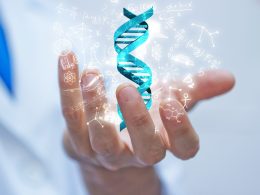Title: Healing from the Scars of Gaslighting: Resources and Support for Survivors of Emotional Abuse
Word Count: 600
Introduction: Gaslighting, a form of emotional abuse, can leave lasting scars on survivors, impacting their self-esteem, mental health, and overall well-being. In this article, we explore resources and support available for individuals healing from the effects of gaslighting, empowering survivors to embark on a journey of healing and recovery.
Understanding Gaslighting: Gaslighting is a manipulative tactic used by abusers to undermine the victim’s reality and sense of self. It involves distorting the truth, denying facts, and manipulating the victim’s emotions to gain control. Survivors of gaslighting often struggle with self-doubt, confusion, and trauma.
Recognizing the Need for Healing: Healing from the scars of gaslighting is a complex process that requires time, support, and self-compassion. It is essential for survivors to acknowledge the impact of gaslighting on their lives and prioritize their healing journey.
Resources for Healing:
- Therapy and Counseling: Seeking professional help is crucial for survivors of gaslighting. Therapists and counselors can provide a safe space to process the trauma, develop coping strategies, and rebuild self-esteem. Cognitive-behavioral therapy (CBT) and trauma-focused therapy are effective approaches for healing.
- Support Groups: Joining support groups, either in-person or online, can offer a sense of community and validation. Connecting with others who have experienced similar forms of emotional abuse provides a space for sharing experiences, gaining insights, and receiving support.
- Helplines and Hotlines: Various helplines and hotlines specialize in providing support and guidance for survivors of abuse. These confidential services offer a listening ear, information, and referrals to additional resources.
- Self-Help Books and Literature: There are several self-help books and literature available that address gaslighting and healing from emotional abuse. These resources offer practical strategies, personal stories, and guidance on regaining self-worth and moving forward.
- Online Resources and Websites: Numerous websites, blogs, and online platforms provide information, articles, and resources specifically designed to support survivors of gaslighting. These platforms offer insights into the dynamics of gaslighting, self-care tips, and validation.
- Art Therapy and Creative Outlets: Engaging in art therapy or creative outlets, such as writing, painting, or music, can be a powerful means of self-expression and healing. These mediums allow survivors to explore and process their emotions in a safe and cathartic way.
- Mindfulness and Meditation: Practicing mindfulness and meditation techniques can help survivors regain a sense of grounding and inner peace. Mindfulness exercises focus on the present moment, promoting self-awareness and reducing anxiety.
- Advocacy and Awareness Organizations: There are numerous organizations dedicated to raising awareness about gaslighting and supporting survivors of emotional abuse. These organizations provide resources, advocacy, and educational initiatives to empower survivors and promote societal change.
Remembering Self-Care: Throughout the healing journey, self-care is paramount. Here are some self-care practices that can support survivors:
- Prioritizing physical and mental well-being through exercise, proper nutrition, and regular sleep patterns.
- Engaging in activities that bring joy and relaxation, such as hobbies, spending time in nature, or practicing mindfulness.
- Setting boundaries to protect emotional well-being and avoid toxic relationships or situations.
- Practicing self-compassion and nurturing a positive self-image.
- Surrounding oneself with supportive and understanding friends and family.
Conclusion: Healing from the scars of gaslighting requires courage, support, and self-compassion. By accessing available resources such as therapy, support groups, self-help literature, and online platforms, survivors can embark on a journey of healing and recovery. It is important to remember that healing is a personal process and may take time, but with the right tools and support, survivors can reclaim their self-worth, regain control of their lives, and thrive once again.











